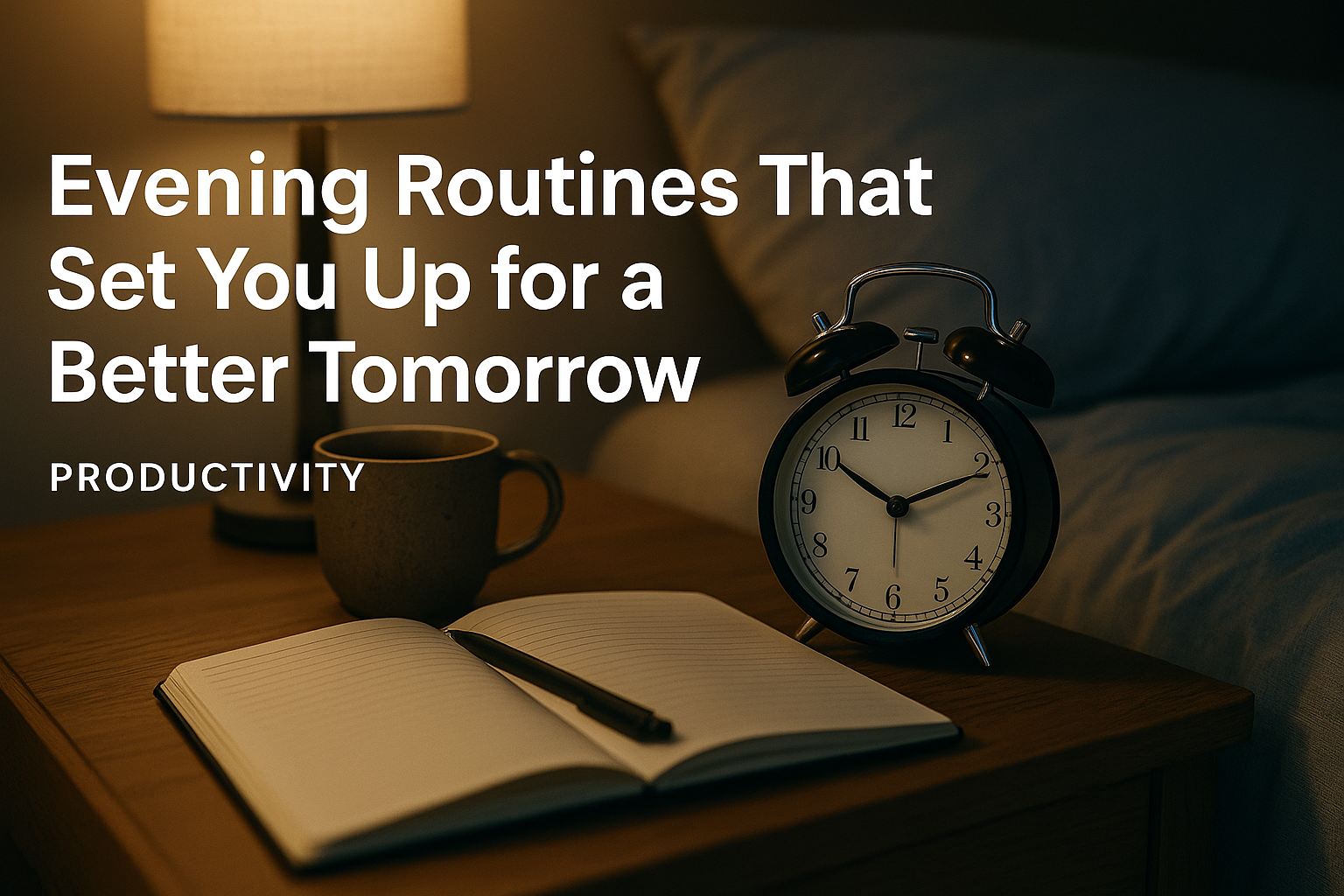Most people focus on their morning routine, but your evening routine is just as important—if not more. A peaceful, intentional night sets the stage for quality rest, reduced stress, and a productive day ahead.
In this article, you’ll learn how to create an evening routine that supports your mind, body, and goals.
Why Evening Routines Matter
Your brain doesn’t simply shut off at night. The final hours of your day influence how well you sleep, how you feel in the morning, and how effectively you function long-term.
A good evening routine helps you:
- Wind down and de-stress
- Transition away from work or responsibilities
- Sleep better and wake up more refreshed
- Reflect on the day and mentally prepare for tomorrow
You don’t need a long checklist—just a few consistent habits done with intention.
Step 1: Set a “Shutdown” Time
Decide when your day will end. This prevents work or digital distractions from bleeding into your rest time.
Tips:
- Choose a time at least 30–60 minutes before bed
- Set an alarm or reminder if needed
- Log out of work apps or close your laptop to create a mental boundary
This simple boundary tells your brain: it’s time to slow down.
Step 2: Unplug From Screens
Blue light from phones and laptops disrupts your melatonin production, making it harder to fall asleep.
Try this:
- Turn off screens 30–60 minutes before bed
- Replace scrolling with reading, journaling, or light stretching
- Use “Night Shift” mode or blue light blockers if screen time is unavoidable
Give your brain space to relax without constant stimulation.
Step 3: Reflect and Release the Day
Before you sleep, give yourself a chance to process the day so you don’t carry it into tomorrow.
Use a journal or notebook to:
- Write 3 things you’re grateful for
- Reflect on one thing you learned or enjoyed
- Acknowledge one thing you’ll do better next time
- Brain-dump lingering thoughts to free your mind
This emotional reset clears mental clutter and builds self-awareness.
Step 4: Prep for Tomorrow
Planning ahead reduces anxiety and saves mental energy the next day.
Evening prep can include:
- Laying out your clothes
- Reviewing your calendar
- Prepping lunch or breakfast
- Writing your top 3 priorities for the next day
You’ll wake up with clarity instead of chaos.
Step 5: Add Calming Rituals
Choose activities that signal rest and relaxation. These habits don’t need to be complex—just soothing and consistent.
Examples:
- Light stretching or yoga
- Warm shower or bath
- Herbal tea (like chamomile or peppermint)
- Meditation or deep breathing
- Listening to calming music or nature sounds
The key is repetition. Over time, your body will begin to associate these rituals with sleep readiness.
Step 6: Stick to a Consistent Sleep Schedule
Your body has an internal clock (circadian rhythm) that thrives on regularity. Going to bed and waking up at the same time each day—even on weekends—improves sleep quality.
Aim for:
- 7–9 hours of sleep
- A consistent bedtime and wake-up time
- Limiting caffeine after 2 PM
Good sleep isn’t just about quantity—it’s about rhythm.
Final Thought: Win Tomorrow by Ending Today Intentionally
Your evening routine doesn’t have to be perfect or packed with productivity. It should feel calming, intentional, and aligned with your needs.
Even if you start with just one habit—like putting your phone away early or writing tomorrow’s to-do list—you’ll feel the difference.
The day doesn’t end when you stop working. It ends when you give yourself permission to slow down and reset.

